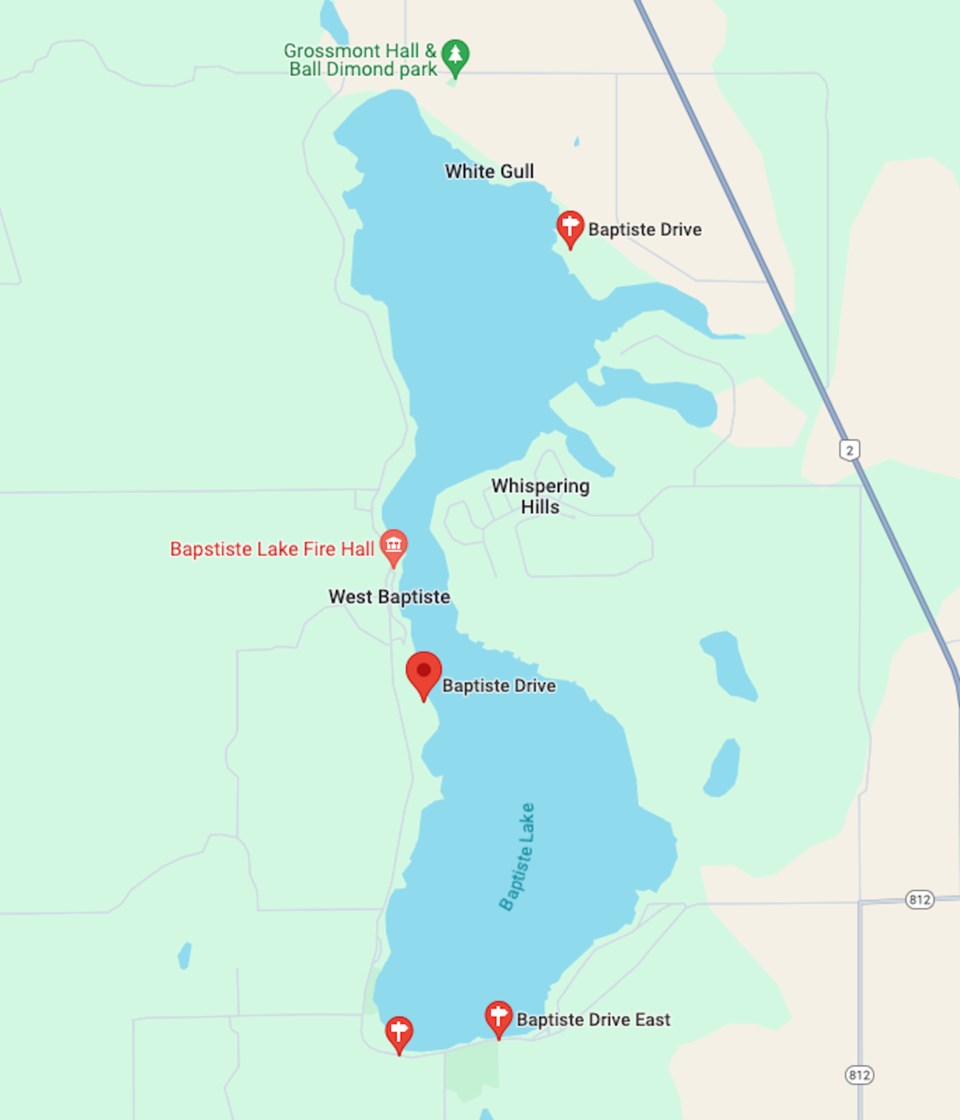ATHABASCA — Think the name of your road is misleading? How about derogatory? Do you have a burning desire to put a more community-centric stamp on facilities in the area? Thanks to Athabasca County’s new naming policy, residents in the region can have their say on the labels of a range of municipal assets.
Director of Infrastructure for Athabasca County, Jocelyn Whaley, brought the draft policy to councillors during their Jan. 9 regular meeting. Her discussion report in the meeting agenda noted town staff began work on guidelines for naming municipal assets after a letter was received in November from a concerned ratepayer.
“My family and I have owned a cabin at Baptiste Lake for many years,” wrote Sheena Pacholok in a Nov. 9 letter submitted to council. “We were aware that there were two roads named the same around the lake … it only became an issue for our family when, this summer, we had a boating accident with a child and had to call an ambulance,” read Pacholok’s letter.
She said the family experienced “undue stress” in trying to give verbal instructions to EMS responders, who Pacholok was concerned would be confused by the double naming — while the family’s cabin is located along Baptiste Drive on the northeast side of Baptiste Lake, another road on the west side of the water carries the same name.
Pacholok’s letter prompted regional fire chief Travis Shalapay to investigate the concerns. In a Dec. 5 briefing note, Shalapay wrote that without specifics of the incident, it wasn’t possible to determine whether the name duplication caused any delay in EMS response time. Shalapay said the regional EMS operations manager noted responders use GPS data based on civic addressing, rather than ‘also known as’ names such as Paxson Road or Baptiste Drive.
Whaley said civic addressing is “the blue sign at the end of your driveway,” and the numbers are based on residence position on the rural grid. The first digits identify the township road, followed by the distance in miles how far down the road a home or driveway is located, and the last numbers indicate the range road.
“Everyone needs to learn their blue address,” said Whaley. “It may save someone’s life, and I’m not over-exaggerating with that … this is how we get the ambulance, fire truck and the police there.”
Although duplicate road names may not pose an issue for emergency services, Whaley noted the county did not have a naming policy in place, guidelines she said most municipalities follow.
“It was uncommon for us not to have one,” said Whaley. “St. Albert just updated theirs, but Spruce Grove, Edmonton, Leduc County,” all have similar guidelines, she added. “It’s very normal to have a policy or a procedure (for) how you would deal with naming of municipal assets.”
Administration is in the process of drafting the application form, and Whaley said applications for renaming assets such as roads, parks, and facilities like recreation areas, maintenance yards, stormwater management facilities, and even bridges may be open as early as the end of February.
Applications must include a justification for the new name, the applicant’s information, and a write-up of why the change should be considered. Suggested names can either reflect a significant historical event from the region, reference geological or topographical features of the area, or highlight the local flora and fauna.
The policy does include some important caveats: for road name changes, 75 per cent of property and business owners directly affected must support the proposed change. Petitions would be held to provincial regulations, meaning around 30 per cent of county residents must be in support of proposed changes, although each application will be reviewed on a case-by-case basis.
The guidelines also note applicants may be responsible for costs associated with approved name alterations such as funds for new road signs, or third-party sponsorships of municipal facilities.
“Since there’s no cost associated with this policy currently, and we don’t have a fees and charges bylaw that would indicate any costs right now, there is a zero cost for anything that is suggested,” said Whaley. She noted the policy can expand to include costs for third-party sponsorships.
“I congratulate administration’s initiative on trying to solve the problem right away,” said county Reeve Brian Hall, who suggested the policy be directed to a committee of the whole meeting for a “more open discussion.”
“I’m happy with the policy. I think it’s great,” said Coun. Tracy Holland. “It’s an awesome start, and as we all know policies can be brought back and changed and messed around with,” she said, adding a “well done,” towards Whaley.
Councillors voted 8-1 to approve the policy with Hall as the opposing vote.
“I don’t know if there’ll be any strong movement to start changing names on things. That’s something we’ll have to wait and see if it happens,” said Hall. “Creating opportunities for our community to engage and to have greater input into the region is important, and that aligns with our strategic plan.”



